The Wever-Croes cabinet's integrity policy: Do as I say, not as I do
The top of the government, just like in the family hierarchy, impose rules while ignoring many rules themselves.
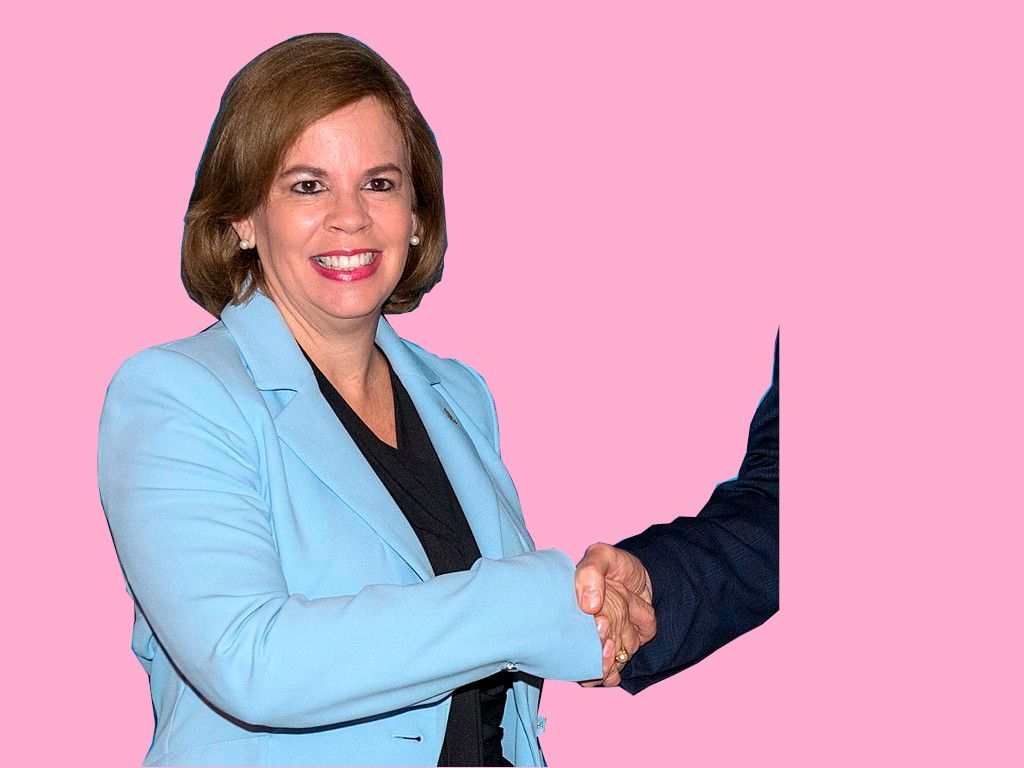
Kids have nothing to say when adults are speaking
You remember when you were a kid, how curious you were about how the world worked? How you always used to bug your parents, asking about where the stars come from, and why there are fish in the sea? I remember asking my parents all sorts of questions. When my mom didn't have time or patience, she would tell me to ask my dad. You see, she was too busy working long days on a catamaran cruise, working in sales, while also avoiding letters from the Aruban immigration department, DIMAS. After their divorce, it became even more difficult, and my mom had almost no time for my childhood existential questions.
Even if you didn't have the same immigration troubles, if you grew up in the Caribbean, it's likely you're familiar with a scene where adults are sitting around the table and talking 'adult things'. A conversation you were completely segregated from, even when you wanted to comment. The rationale was that certain conversations didn't concern children.
Family don't air each other's dirty laundry
After growing up, you see the same cultural phenomenon replicated in the Caribbean democracy. The table is governance, the adults that don't let the kids participate are politicians, and the conversation is about integrity. Ironically, the tables in Caribbean democracies are often filled with family. But we all know that family don't air each other's dirty laundry for others to see.
The problem with political patronage and nepotistic job offers in the government are an open secret in the Caribbean, like a lot of fundamental problems. The conversation about 'friends & family' benefiting from political power is never about acknowledging how a widespread network of familial ties on a small island like Aruba becomes an issue for quality of governance. Just like within a family, there are certain issues that aren't talked about. That's an issue for the functioning of democratic institutions, because then the system of checks and balances can be prone to failure. Besides that, it obviously creates conflicts of interest within government institutions.
That wouldn't be as big of a concern if the system worked so well, that even when family have to check each other, they would be able to do so neutrally. In a young democracy like Aruba's, I doubt that's possible (yet). Ursell Arends (minister of Integrity) on the other hand, seems like he wants to lie to himself or the public about this issue. He claims in a comment to local newspaper Bon Dia Aruba that friends & family is not an issue in the current government of Cabinet Wever-Croes II. Bullshit.

Seems like Ursell forgot his previous ambitions of when he wasn't yet in government. He thought that a minister of integrity should be able to call out his colleagues when they commit acts of nepotism and engage in political patronage. Now that he is minister of integrity and has the power to make his ambitions true, you don't hear a peep from him. Doesn't it at least sound like nepotism if Glenbert Croes (miniser of energy) and Dangui Oduber (minister of tourism)— as Bon Dia Aruba reports — have family in the board of state companies that fall under them?

State companies should follow an example that the Wever-Croes cabinet does not give
The almost religious practice at every change of government to name new faces (often friends & family) in the boards of state companies is confirmed in a 2020 survey that prime minister Evelyn Wever-Croes had made. Although I'll give her points for arranging that an independent survey got carried out, the results show the lack of leading by example from the Wever-Croes cabinet.
Thrity-one state companies participated in the survey to get an impression of what the state of corporate governance was at the time of the report. Important findings were, among others, that a new government's ritual of placing friends & family in the boards of state companies affects the continuity of knowledge about corporate governance within the organization (p. 27) The respondents say that if the government wants to impose a corporate governance code about integrity in state companies, they should lead by example (p. 26-27).
That's just common sense. How can you expect a state company to implement rules to mitigate conflicts of interest when their shareholder only perpetuate this by putting friends & family on their boards?

Ministry of Friends & Family
Besides the nepotism in state companies and contracts for family, the problem is also centered in ministries themselves. I remember seeing a lot of advisors walking around in the Bestuurskantoor building with badges to open doors with the word 'temporary' on them. This was when I used to cover the press conferences of the Aruban government.
Some of these badge-carriers work for their sibling or otherwise other family member — that is surely the case with Glenbert Croes, who has his sister doing his PR. That ministers can have family members work for them is something that they seem to not want to admit, or alternatively — they don't think it's a big deal. I mean, it goes so far that Glenbert Croes and Evelyn Wever-Croes are cousins. That's also fine cause they come with rules to avoid familial relations between ministers, yet they conveniently don't define cousins as banned familial bonds in the law, as the previously mentioned Bon Dia publication states.
So, every 4 years there's a chance that a new gang will get the keys to the Bestuurskantoor, effectively starting over, because the ministries don't have any inherent structure. Government organizations usually have quite a rigid hierarchy, and their structure is fixed at conception. Not at the top of the pyramid though. Of course, this also creates concerns for the continuity of governance, as secretary of the Council of Advice Braamskamp says under this paragraph.
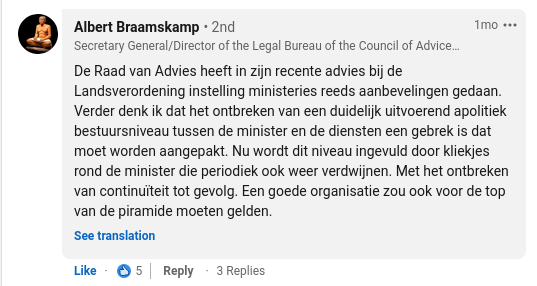
Besides this, it creates issues when power must be handed over to political rivals who suddenly can have a complete overview of what their predecesor could have done wrong. When political opponents have to hand over power to each other, messing around with something is guaranteed. For example, the practice of ministers destroying documents before leaving office. More on this later.

The top of the government hierarchy, just like within the family, impose authority unto others while ignoring many rules themselves. It's a classic case of do as I say, not as I do.
The Wever-Croes cabinet often comes with graphs to sell stories about how they employ less advisors in their ministries compared to the exuberant amount employed by the Eman cabinets before. For example, in the 2020 annual report of the ministry of general affairs.
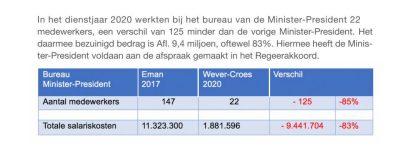
Cute, but that doesn't fix the real problem. The ministries should have an apolitical core for most functions, with room for ministers to bring only a handful of advisors for specific issues.
Of course, it's not only the current government that hasn't dealt with this issue, and has instead decided to benefit from the lack of structure in ministries. But as it's common, whenever critique like this gets brought, critics are accused of being sleeper agents for the opposition party.
Even this reaction to critique shows the level of maturity in those that call themselves political leaders in Aruba. I'm sure for them, it must be a shock to see people critique something out of a desire to better it, something that it seems they have no interest in while holding on to their benefits and positions.
Does the government want to combat its own conflicts of interest?
I'm not the only one that thinks they're immature, though. The Council of Advice, which gets consulted whenever new laws are made, also thinks the highest sphere of Aruban politics is rife with immaturity. They expressed this in their advice on the National ordinance on ministerial integrity. They argue this based on the fact that in 6 years, 6 different laws were drafted to regulate the integrity of ministers and members of parliament. None of them resulted in an agreement at the highest sphere of Aruban politics on what the conduct of politicians should be. The law that did take effect, an initiative from two members of parliament of the MEP party, doesn't include rules for members of parliament, as the name suggests. The council concludes, then, that there is a lack of maturity in politics, and they seriously question if the governments of the island have any real interest in changing their own conduct when it comes to integrity.
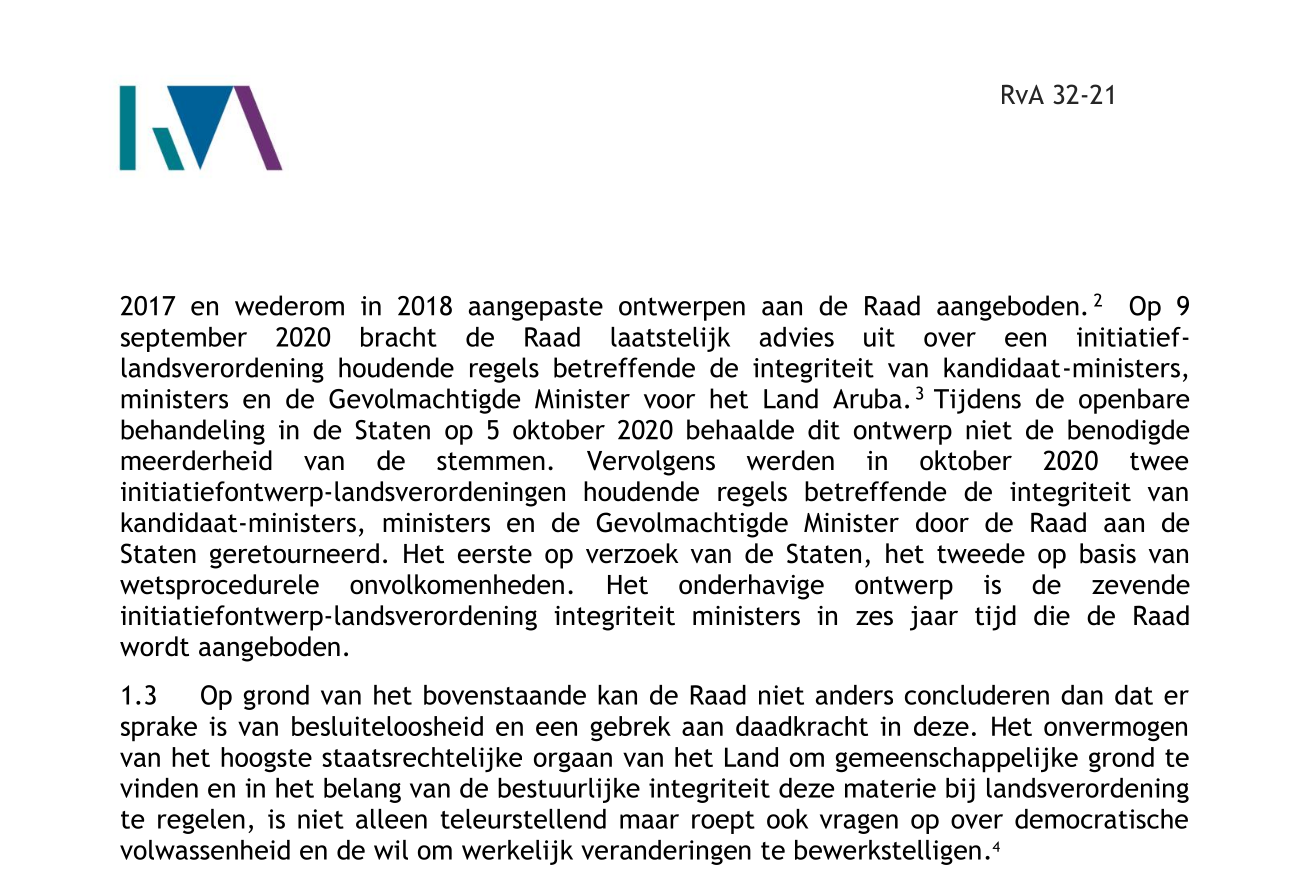
Given this legislative drama, the results of the Central Bank of Aruba's last survey (2020) about corruption is not surprising. A majority of respondents (71%) believe that politicians don't have any real intention to combat corruption because they themselves benefit from it.
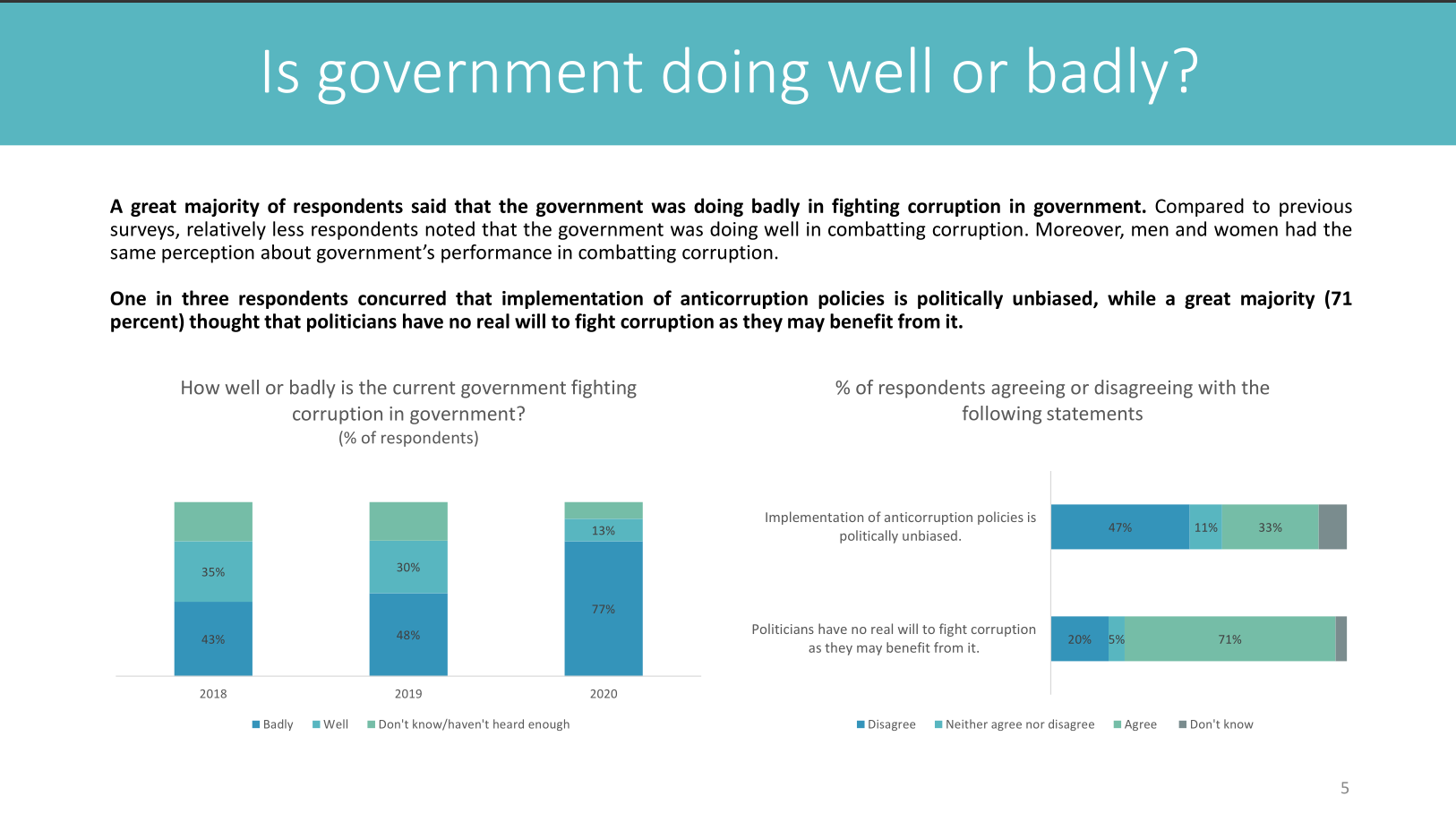
Do as I say, not as I do
Collectively, it seems then that the Aruban population is like a child who sees the morally reprehensible behavior of their parent and calls them out on it, while the parent doesn't give a damn. The parent meanwhile does tell the child how things should be done. Do as I say, not as I do.
Given that family members still get jobs at state companies, the lack of personnel policy in ministries and lack of effective integrity rules for politicians, it's clear that there is no real interest to govern Aruba according to the principles of rule of law.
Without strong democratic institutions that can check each other and balance each other out, the country will not go forward. Politicians talk a lot about integrity only when they've not stepped into government yet, or after they've left government (as the tragic story of the RAIZ party of Ursell Arends shows). The only denouncing of corruption that politicians in power do on the islands is against their political opposition.
It's a clear case of a neglectful parent. They don't think about their children, are minimally worried about their well-being, and yet they like to pretend to be the best parent. Whenever something goes wrong, they blame someone else.


